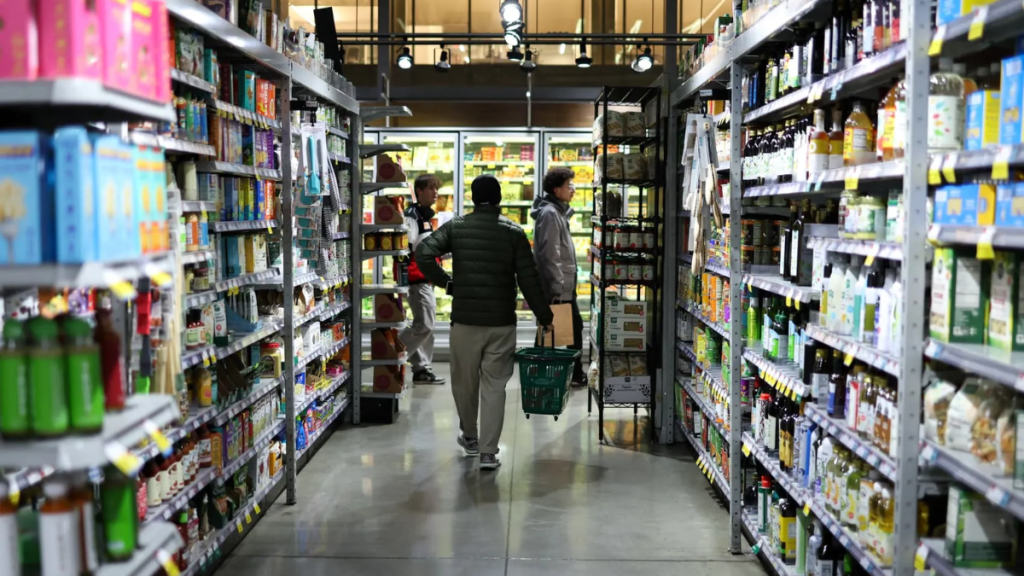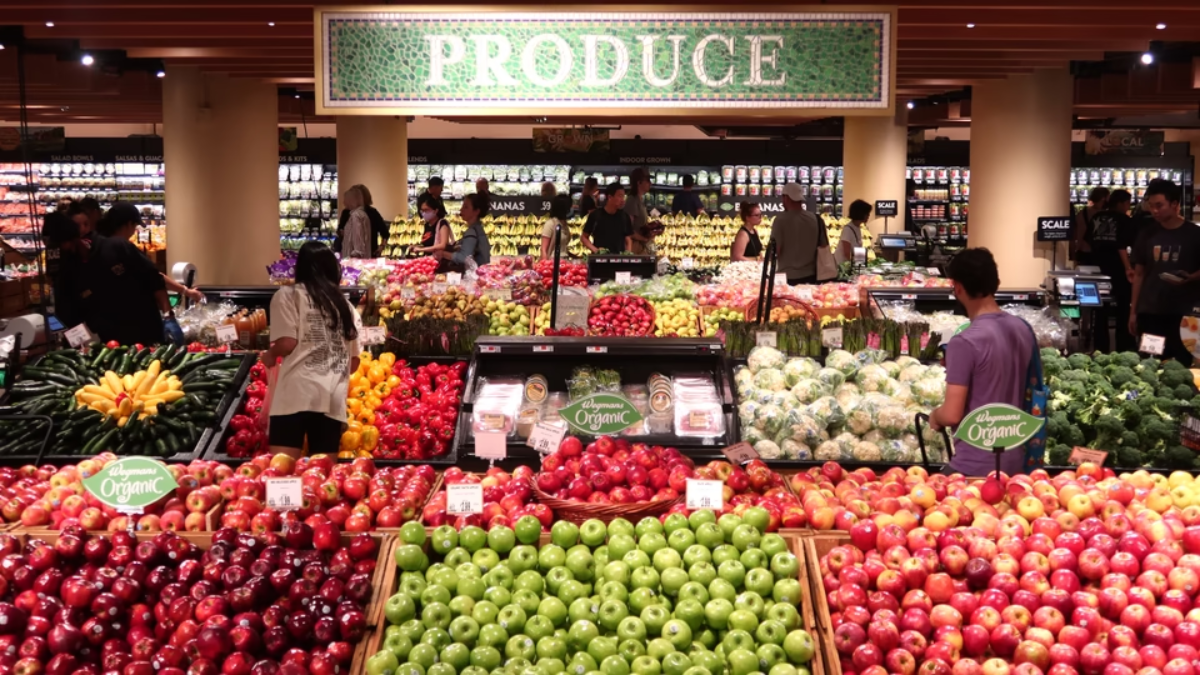As global trade tensions continue to shape the retail landscape, one major supermarket chain is taking a firm stand against rising costs caused by tariffs. The chain has notified its suppliers that it will not accept any price increases related to recent tariffs.
This decision reflects the company’s commitment to maintaining affordable prices for consumers, even as the impact of global trade policies continues to be felt by businesses and shoppers alike.
In this article, we will explore the supermarket’s bold move, its implications for suppliers, and how it might affect shoppers in the long run.
The Decision to Reject Price Increases
Impact of Tariffs on Supply Chains
The decision by the supermarket chain comes at a time when tariffs imposed by governments are pushing up costs across the supply chain. Tariffs, or taxes on imports, have been a key issue in global trade disputes.
For suppliers, these increased costs can affect everything from raw materials to finished goods. As a result, many suppliers have passed these costs onto retailers, leading to higher prices for consumers.
However, this supermarket chain has chosen not to pass the burden onto its customers. The retailer believes that absorbing these costs rather than raising prices is the best way to maintain customer loyalty and market share in a competitive retail environment.
By rejecting price increases, the chain signals its dedication to keeping costs stable despite global economic pressures.
The Supermarket’s Stance on Cost Absorption
In its communication to suppliers, the supermarket chain made it clear that it would not accept price hikes related to tariffs. The retailer emphasized that it would seek to negotiate better terms or find alternative solutions that do not involve increasing prices for consumers.
This stance is a bold move, considering that many companies across the retail sector have opted to raise prices to offset rising tariffs.
According to a company spokesperson, the supermarket is focused on providing value to its customers, particularly during challenging economic times.
The chain is taking steps to ensure that it remains a cost-effective option for families, even if that means absorbing some of the additional costs rather than passing them on to consumers.
The Challenges Facing Suppliers
Supply Chain Disruptions and Increased Costs
For suppliers, the supermarket’s decision presents a significant challenge. Many suppliers have been dealing with increased costs due to tariffs on goods imported from countries involved in trade disputes. As these costs rise, suppliers often have to choose between raising their prices or absorbing the costs, which can strain their bottom lines.
In response to the supermarket’s refusal to accept price increases, some suppliers may be forced to find other ways to adjust their pricing strategies, whether by renegotiating contracts with other retailers or seeking new markets for their goods.
However, the decision to reject price hikes could lead to tensions between the supermarket chain and its suppliers, especially if the latter feel that their costs are no longer being adequately covered.
The Impact on Small Suppliers
Small suppliers, in particular, may find it difficult to absorb additional costs. For smaller companies with tighter margins, the added pressure from tariffs can be more difficult to manage. These businesses may have fewer options when it comes to negotiating prices or finding alternative retailers willing to accept higher costs.
As a result, the supermarket’s decision could have far-reaching consequences for small and medium-sized suppliers that rely on large retailers for a significant portion of their sales.
To address these concerns, the supermarket chain may need to explore ways to assist smaller suppliers in weathering the tariff-related cost increases.
This could involve offering longer payment terms, providing volume discounts, or working with suppliers to streamline operations and reduce inefficiencies.
How This Decision Affects Consumers
Short-Term Benefits for Shoppers
In the short term, the supermarket chain’s refusal to accept cost increases is likely to benefit consumers. By absorbing the additional costs associated with tariffs, the supermarket can continue offering competitive prices, which will help keep household budgets in check.
This is especially important as consumers face rising prices in other areas, such as housing, energy, and healthcare.
Consumers may also see continued promotions and discounts, as the supermarket looks for ways to offset rising costs without passing them on. While some products may experience slight price increases due to factors other than tariffs, the supermarket’s overall pricing strategy will likely remain relatively stable.

Long-Term Impact on Prices
However, the long-term impact of this decision remains uncertain. If tariffs continue to rise or if other global trade issues exacerbate supply chain disruptions, the supermarket chain may eventually have to adjust its pricing strategy.
Although it is committed to avoiding price hikes in the short term, the retailer could be forced to make tough decisions if supplier costs become unsustainable.
Furthermore, if suppliers are unable to absorb the costs, some may reduce their supply to the supermarket or increase prices on other items.
These price shifts could eventually lead to higher prices on certain products, which would affect consumers.
The Bigger Picture: Retailers and Global Trade Policies
The Role of Retailers in Trade Disputes
The supermarket chain’s decision highlights the broader impact of global trade policies on everyday consumers. Retailers often find themselves caught between rising costs due to tariffs and the pressure to maintain competitive pricing.
As trade wars and tariff disputes continue to shape the global economy, more retailers may be faced with similar decisions about how to handle increasing costs.
Retailers that choose to absorb these costs, rather than passing them onto consumers, may be able to differentiate themselves in the marketplace. By taking a stand against price hikes, they can strengthen their brand image and cultivate customer loyalty.
However, this strategy is not without risks, as rising costs could eventually erode profit margins.
The Future of Tariffs and Their Impact on the Retail Sector
Looking ahead, the impact of tariffs on the retail sector will largely depend on how global trade relations evolve. If trade tensions continue to escalate, more suppliers may face increased costs, which could lead to higher prices for consumers.
Retailers will need to find ways to balance the demands of maintaining low prices with the reality of rising costs.
Conclusion
In conclusion, the supermarket chain’s decision to reject cost increases over tariffs is a bold move that will have significant implications for both suppliers and consumers. While the short-term impact is likely to benefit shoppers with stable prices, the long-term consequences remain uncertain as tariffs continue to disrupt global supply chains.
Retailers, suppliers, and consumers alike will need to adapt to the changing economic landscape and navigate the challenges posed by rising tariffs.
The supermarket chain’s stance may serve as a model for other retailers looking to manage costs and maintain customer loyalty during uncertain times.
For further insights on how tariffs affect the retail sector, visit this CNBC article on the effects of trade tariffs.
Disclaimer – Our team has carefully fact-checked this article to make sure it’s accurate and free from any misinformation. We’re dedicated to keeping our content honest and reliable for our readers.
